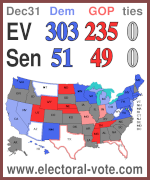And how can it be so cheap? Because your tax dollars are already paying for it.
-
‹ Home
Info
-
Subscribe
-
Users
Links
- All Hat No Cattle
- Andy Borowitz
- Axios
- Barry Deutsch
- Bearman Cartoons
- Beau of the Fifth Column
- Capitol Steps
- Cook Political Report
- Crooks and Liars
- Daily Kos Comics
- Daily Show
- David Horsey
- Derf City
- Digby
- Eclectablog
- Electoral Vote
- Fair and Unbalanced
- Fark Politics
- Five Thirty Eight Politics
- Funny or Die
- Funny Times
- Go Comics
- Hackwhackers
- Heather Cox Richardson
- HuffPost Comedy
- John Fugelsang
- Kung Foo Monkey
- Last Week Tonight
- Margaret and Helen
- Mark Fiore
- Matt Davies
- Matt Wuerker
- McClatchy Cartoons
- News of the Weird
- O'Carl's Law
- Politicususa
- PolitiFact
- Propaganda Professor
- Raging Pencils
- Randy Rainbow
- RCP Cartoons
- Saturday Night Live
- Slowpoke
- Stonekettle Station
- Ted Rall
- The Nib
- The Onion
- Tom the Dancing Bug
- Tom Toles
- USN Political Cartoons
- What Now Toons
-
Tags
Abortion Bush Campaign Finance Cheney Climate Clinton Congress Conservatives Corporations Corruption Deficits Democrats Drugs Economy Education Election Elections Energy Environment Fox News Gays Guns Health Immigration Lies McCain Media Middle East Obama Palin Protests Racism Religion Republicans Romney Spying Supreme Court Taxes Tea Party Terrorism Terrorists Torture Trump Unemployment War
-
Archives

You are Visitor #

4 Comments
I feel very strongly on this issue. The food stamp act was passed to keep the farmers in business with their excess produce that people couldn’t afford in the depression. http://en.wikipedia.org/wiki/Supplemental_Nutrition_Assistance_Program#The_First_Food_Stamp_Program_.28FSP.29_-_May_16.2C_1939-Spring_1943 It also becomes an “income distribution program” The farmers have jobs and stay in business. Everyone including the laid off workers have food in this country. In England it is called the “dole”. Before that people were allowed to starve. If my son on his dairy farm did not have federal subsidies, your milk would be twice as expensive. (cheese, pizza, baby formula, etc.) So the rich can pay twice as much for milk, but can the unemployed? Isn’t this what we wanted? For the rich to pay higher taxes to help the less rich? As it is in many place like New York State, if you can’t afford medicines, the state steps in to help. Now the government is stepping in to help the less fortunate have health insuranance. This is called socialism pure and simple and has been around since 1939. My son has a huge six figure gross on his farm. His net is negligible even without repaying his farm loans to the government. Meanwhile he got an award for the quality of his milk.
Kudos on the award, having worked on a small dairy farm I can relate to issue. Having been hired help I can’t relate completely but I’ll throw my two cents in anyway. One of the farms is still operational although the days are numbered since his only heir wants nothing to do with AG. The other farm sold out due to the land values at the time outpaced profits from the milk. Ironically only part of the land was developed due to the bottom dropping out of the market. My point is the small farms are disappearing and if the trend is not reversed or even encouraged to reverse we will all be eating Monsanto plastic and may god help us it one pest (insect) develops a taste for the only type of corn grown. Diversification is key in protecting our crops and ourselves since I often wonder the nutritional value of this.
My understanding is that the support to farms just guarantees them a minimum amount for their crops. As such, they have little to no incentive to barter for better prices. This allows corporations to purchase the grains for next to nothing, then the taxpayers pay the farmer the rest.
So it doesn’t really work out as a subsidy for the farmer, but for the corporations. Without the subsidy, the farmers might bet a little less, but not a whole lot. And the corporations would be paying a lot more.
I think there are 2 types of farms, one is corporate mega farms and the other independantly owned and worked by the owner. Unfortunately the later seem to be going the way of small business when the mega chains came into existence. Like in what Home Depot did to many small hardware stores and the Walmarts and Kmarts did to the local “Five and Dime” stores. The small guys can’t compete against the behemoths. But I’d have to say I’ve seen a resurgence of the small retailers within the specialties groups and I as a practice prefer to buy from a local guy even if it’s a little more expensive.
I hope that perhaps that trend spills over into family owned farms. Perhaps they’ll find a niche in quality or specialty that lifts them up. There is just such a farm not too far from where I live and they have pick your own peaches, strawberries, blueberries, and a lot more. My family and kids really enjoys our couple of trips out there each year its become a tradition. I don’t know if they benefit from any subsidy or not.